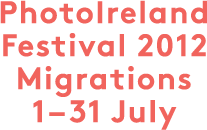Two deaths in three weeks in Spain’s notorious detention centres
‘s map of detention centres” width=”610″ />
Allegations of institutional neglect surround the deaths of two migrants within weeks of a report calling for the centres’ closure.
In the early hours of 5 January, a 21-year-old man from Guinea-Conraky, died in Barcelona’s immigration detention centre after complaining of chest pains or (according to another report) breathing problems. The age of the deceased, who has not been named, is enough to sound alarm bells. Friends who were with him allege that the guards delayed in seeking medical help for the young man. Police claim they were on hand immediately and that within fifteen minutes an ambulance had arrived and medical personnel were trying to revive him. Detainees staged a hunger strike to protest the death, pointing out that there are no 24-hour medical facilities at the centre and that doctors only visit twice a week. The authorities responded to the protest by deploying riot police.
The young man was the second person to die in a Spanish migrant detention centre in less than three weeks. On 19 December 2011, an unnamed woman, aged 41, believed to be from the Democratic Republic of the Congo, died of meningitis hours after her admission to hospital from the Aluche detention centre, in the suburbs of Madrid. A ruling on the death from the Madrid court which monitors the centre was highly critical of the ‘manifest overcrowding’ suffered by inmates, who are held six or eight to a cell, the lack of washing and toilet facilities or an infirmary, all of which facilitate the spread of infectious diseases. The court, which described conditions at Aluche as ‘particularly serious’, ordered the centre staff to segregate those who had had contact with the deceased and to ensure appropriate hospital treatment for anyone needing it. A month earlier, the court had to order centre staff to put a stop to the practice of locking cells and denying access to toilets (which are in the corridors), which was forcing women to relieve themselves in plastic bags, bottles or the small sinks in the cells.
The detention centres which house Spain’s undocumented migrants for up to two months pending their deportation were already attracting condemnation and demands for their closure before these latest events. A report by Migreurop released on 15 December, based on in-depth inspections of four centres (in Málaga, Algeciras, Madrid and Barcelona) documented ‘systematic violations of fundamental rights’ including rights to privacy, to legal help, to moral integrity and to dignity, and called for the centres’ urgent legal regulation, pending their eventual closure. Its campaign for regulation of the centres and the imposition of minimum standards has attracted 40,000 signatures and the support of 400 organisations.
Another report by the NGO Pueblos Unidos (Peoples Together), released the day after the death of the Congolese woman and based on over a thousand visits to the Aluche centre where she died, described ‘widespread ill-treatment’, including collective punishments and deprivation of access to fresh air as well as the ‘humiliating and degrading’ denial of access to toilets. This organisation, like the Episcopal Commission on Migrants in Spain, warns of migrants’ exclusion from the general body of legal rights and norms, in a state of ‘juridical exceptionality’ in the centres.
Source: Institute of Race Relations.








